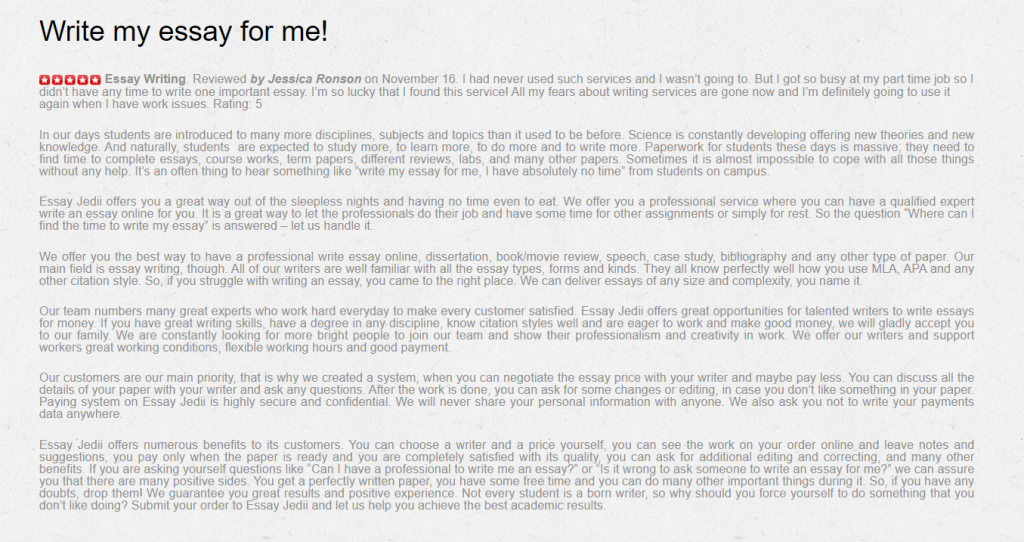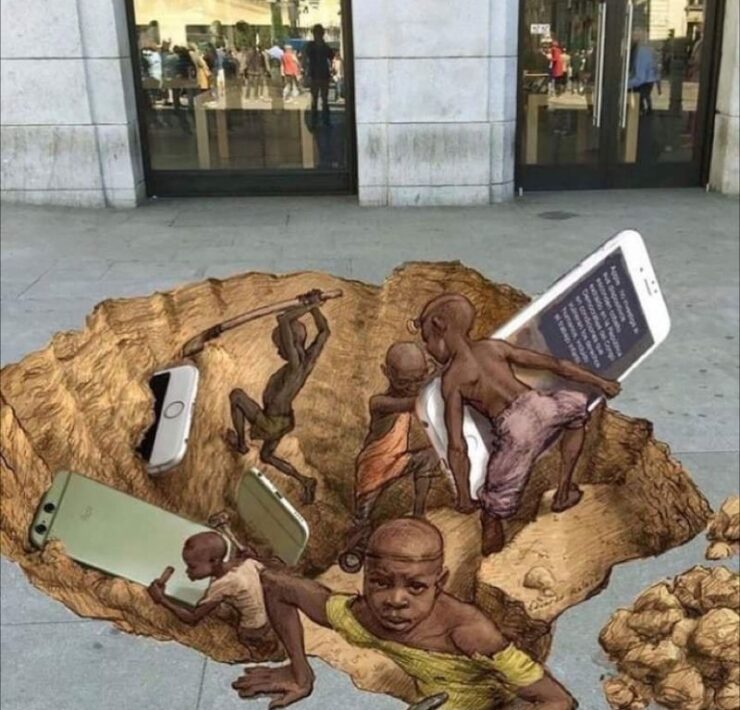WESTERN EDUCATION

Chioma Phillips is the Editor of Msingi Afrika Magazine and…
The Cheat, The Liar and The Fool.
Debora Patta, a foreign correspondent from CBS News, filed a report from Kenya towards the end of July 2021 that began: “Cheating in college is nothing new, but as more and more degrees are done online, it’s become a billion-dollar industry and the heart of it is right here in Nairobi, often using top-class Kenyan graduates, who come from poverty like this.” This last part she says with her hands outstretched, seeking to draw the viewer’s attention to the environment that surrounds her. Her chosen backdrop? A narrow street in a strategically selected slum in Nairobi. The kind that foreign correspondents like to show viewers in the west or east, to illustrate how backward, poor and dirty Afrika is, because the skyscrapers are an inconvenient truth that do not fit in the carefully curated narrative.
Her video piece is on something called ‘contract cheating’, which according to turnitin.com is “the practice of students engaging a third-party to complete assignments. It occurs when someone other than the student completes an assignment–and which the student then submits for assessment/credit.” The third party can be another student, a parent, a teacher or tutor or someone who is paid to do the assignment on behalf of the student.
According to news reports, and other online sources, contract cheating is carried out by students in the US and North America, Australia, China and the UK, to such an extent that there is even an International Day of Action Against Contract Cheating, which was inaugurated in the year 2016. The term, contract cheating, was coined in 2006 in a paper by Thomas Lancaster and Robert Clarke, though academicintegrity.org clarifies that ghostwriting for academic papers took place even before 2006.
‘Essays for sale: the booming online industry in writing academic work to order’ is the title of a 2017 article in The Guardian, authored by Simon Usborn. The article has this as a sub-header: “Selling essays, assignments and even PhDs is big business – and legal, although everyone knows many students will submit the work as their own”. He was writing this from the UK in reference to information he had obtained from UK Essays who referred to their essays as ‘study aids’ that were meant to increase students’ ‘understanding of a topic’. They clarified that those who purchase work from them are not meant to submit the work as their own, even though the company said they did not believe that their clients used their work correctly. Naivety or deception? The Insider in 2016 wrote an article on this topic that was based on a New York Times piece, saying “Millions of essays are produced in countries including Kenya, India, and Ukraine every year to be turned in by American college students.” In fact, according to Patta’s report for CBS News, “The Kenyans are so good at the job that sometimes they get asked to dumb things down. Between them they say they have enabled American students to cheat their way through everything from US history to engineering, even medicine.
May I draw your attention to some very important points that we can pick up from Patta and her story, which we need to focus on as Afrikans? First is her psychological use of the slum setting to explain to her audience the underprivileged backgrounds from which these Nairobi-based ‘billionaire enablers’ are said to come from. The next thing that she did was gloss over the facts, saying that Nairobi is the ‘heart’ of this ‘billion-dollar industry’. If William, from her story is one of those at the ‘heart’ of this billion-dollar industry and is earning $2000 per month, or $24,000 per year, with those he hires earning even less than that, where are these billions? Where are the Kenyans at this ‘heart’ who have them? She didn’t make mention of them turning down her attempts to reach them, she did not list their names or the names of their businesses. I’m not saying Kenyans are not participating in this business. I’m pointing out a glaring hole in her story that situates these ‘smoky slum escapees’ at the ‘heart’ of an industry that, first and foremost, did not originate from and is not restricted to Kenya, as you can see from the quote from The Insider above and as you will find from any quick search online. Wikipedia also lends a hand in the history behind the issue of essay mills or paper mills: “The idea behind term paper mills can be dated back to the mid-nineteenth century in which “paper reservoirs” were located in the basements of fraternity houses. Otherwise known as “fraternity files,” these essay banks were practices in which students shared term papers and submitted work that had been done by other students. These essay banks inspired the commercialization of ghostwritten essay-writing practices. As early as the 1950s, advertisements were circulating college campus that described services that included ghostwritten work for dissertations, theses, and term papers.
In conjunction with this practice, the changing attitudes of students in the 1960s and 1970s started to stray away from diligent and engaged course work because they saw an emphasis on the benefits of community involvement. A new focus on activities outside of the classroom took away from time to focus on class work, thus promoting these writing services throughout college campuses.

Soon, actual businesses were providing custom-written essays for students in exchange for compensation. They were located near college campuses. One could walk into a building and peruse pricing pamphlets, speak to someone directly to place an order, or possibly make a selection from a vault of recycled research papers stored in the basement of these businesses.”
In fact, Patta herself says in her video that “Joan’s tuition fees were due; William was battling to pay his rent and so they turned to the global essay-for-hire industry.” She continues “Here’s how it works; the Kenyans advertise themselves on reputable websites with hip names like Ace My Homework and Essay Jedii. These are legitimate platforms offering academic assistance like tutoring, but some students use them to pay writers who would do anything for them; from an urgent essay to an entire college degree.”
These essay mills, and their clientele and freelance writers are found all around the world. In the Guardian’s article, the owner of that firm is a UK company that charges between 400 – over 1,000 pounds per essay. So, to try to pin this on ‘poverty-stricken’ students in Nairobi is either laziness on her part or some other game is afoot. And to call those platforms reputable is laughable at best, especially when you consider that the CBS anchor in studio admitted that they did not hear back from the companies mentioned, which suggests to me that nobody had occasion to speak to them, let alone vet their reputations. And you really have to visit these websites to find out the other reason why I am laughing. How sly and awful of these Kenyans to ‘exploit’ these ‘reputable’ firms who are only ‘offering academic assistance like tutoring’.
It is interesting how Patta got to the end of her story without wholeheartedly rebuking the American students who the poverty-stricken billion-dollar hub of essay writers ‘would do anything for’ so as to ‘enable them to cheat’. Or how she concluded her narrative without unearthing the real Kenyan billionaires at the ‘heart’ of this industry, who are quite evidently not William or Joan as the calculations I shared will quite quickly help you realize. And yet it seems that it is writers like William and Joan who are somehow managing to magically create the desire in the students to cheat their way through school as these writers deceptively use the ‘reputable’ websites to do so – even as they fail to resist the allure of the Americans. What a weird narrative.
A 2019 article by the Daily Mail exposed one of the profiteers from this industry, a Kenyan by the name of James Karuri, who said he had started his essay writing business while still at the university and had grown over time to a place where he was able to employ 15 administrators and over 80 freelance writers. At the time of their writing, Karuri was said to have been 36 years old and worth US$ 6 million and to be paying his writers about 50 US cents per page for a job worth $50 per page. Karuri would have been doing this business for approximately 10 years by the time of their article. 10 years and not a billion dollars in sight. For him to have made even US$ 1 million, he would have to have written, or had his team write, over two thousand 10-page essays. Using the number of people name in his team, that would be about 25 essays per person. That figure does not include taxes, rent, utilities and salaries paid to his team.
The Daily Mail article stated that there were 115,000 cheating British students every year and that “Demand for essays is too huge for many Kenyan businessmen to ignore. Latest estimates suggest that 115,000 British students buy essays each year, with the true number believed to be far higher. ‘Everything to do with cheating is more widespread than we know,’ said Dr Thomas Lancaster, a computer scientist and expert in contract cheating. ‘From my research, Kenya rules the world in this type of work.’” Everyone seems to be gunning for Kenya, but the numbers are just not adding up. Take the example of this Karuri, who the Daily Mail article describes as rolling up ‘each day in a different luxury car’ and living in a luxury neighborhood, if he was only worth US$6 million at the time, then we’re either missing another player in the game, or the game is not being played where these media houses and experts are claiming that it is. 115,000 per year worth of 10-page essays is worth about US$ 57,500,000 at the $50 rate, making Karuri a very small player indeed, considering that ‘Kenya rules the world in this type of work’. The Daily Mail added as a factoid that “One firm offered to create a 30,000-word PhD thesis for £22,416. Almost all of these companies are based abroad, with many in Kenya but others in Eastern Europe and India.” They didn’t mention which this ‘one firm’ was, where it was located, nor did they provide any information from this ‘one firm’ about how much they may be earning, paying or how many luxury cars they may own. They did not mention which these ‘many companies in Kenya’ which the ones that were not abroad were or how much they were earning. They only served up Mr. Karuri and another Kenyan gentleman also mentioned in the article, a smaller player, for us to heap shame upon. Dr. Lancaster, in 2018, in a separate paper on Kenya’s ‘contract cheating ways’ had this to say: “My recent paper looking at the ghost writers working internationally in the contract cheating industry found that the majority of writers for contract cheating companies were based in Kenya.” He didn’t say that the majority of contract cheating companies were based in Kenya, he said that the writers were. He also said in a 2016 paper published on slideshare.net, that you can link to from the 2018 paper, that he had found that Indians were the highest bidders for work, followed by Kenya and Morocco. Perhaps things changed between 2016 and 2018 and Kenya edged out the rest to rule this business.

In a 2019 article on npr.org, a student was asked why she paid for her assignment to be done for her and she said, ““For me, it was just that the work was piling up,” she explains. “As soon as I finish some big assignment, I get assigned more things, more homework for math, more homework for English. Some papers have to be six or 10 pages long. … And even though I do my best to manage, the deadlines come closer and closer, and it’s just … the pressure.”
“Technically, I don’t think it’s cheating,” the student says. “Because you’re paying someone to write an essay, which they don’t plagiarize, and they write everything on their own.”” Asked if she thought that she was plagiarizing, she said “That’s just a difficult question to answer,” she says. “I don’t know how to feel about that. It’s kind of like a gray area. It’s maybe on the edge, kind of?”
Besides she adds, she probably won’t use all of it.”
A professor of ethics from the US that Debora Patta interviewed called Dr. David Rettinger, said, “We trust that our doctor has actually been to medical school. Cheating leads us to overall social corruption, because it leads us to having a cadre of professionals who can’t actually do the work that they claim they can do.” Meaning that there are a bunch of liars who are willing to cheat their way through school – including those doing medical and engineering degrees – some of whom are now working in sensitive positions that could lead to or cause the deaths of possibly thousands or more due to their actual lack of skills and qualifications. And for the real graduates, those like William or Joan or Mary Mbugua (the latter was interviewed in 2019 by the New York Times) they are keenly aware that the education system in the US, the UK and other countries in the world is not what it appears to be. Having seen its tender underbelly and beaten the system over and over again, these essayists have uncovered a truth that more Afrikans should know about. I will get into that a little later in this article.
In addition to that, the professor and the editors of Patta’s video missed several critical issues. The first of which is that cheating does not lead to overall social corruption, but rather it is an outcome of it. Corruption stems from what is in the heart, from what one perceives oneself and one’s society and culture to be, from how one measures right from wrong, and the importance of right and wrong in one’s eyes based on cultural experience and observations. Consider the recent college admissions scandal in the US where 50 people were charged for trying to get children into schools they had not qualified to attend. Parents would pay millions of dollars to a college admissions counselor to have their children’s test scores and athletic achievements falsified, in order to secure their admission to elite colleges. Had they gotten away with it, like I believe others have in the past, their children would have understood the underlying message: “You want it? You can have it, if you can pay for it somehow.” We see the fruit of this culture in the children who are paying to have their assignments, essays, degree programs (undergrad, Master’s and PhD) done for them. We also see it in those who seduce their professors or give in to sexual pressure from their professors in order to get ‘good’ grades? They draw their cues from a society around them that frowns on a certain type of failure (i.e., the kind that makes you look lower in the eyes of a superficial society) and celebrates access to elite schools, high-flying jobs and lifestyles etc. A society that is obsessed with status, how things look and – all things considered – bribery and corruption.
Bestvalueschools.org puts it this way, “Pressure to do well either academically to get into colleges, or to maintain a certain GPA causes some students to cheat. Students also face other pressures from external sources like parents, jobs, or other responsibilities that prevent them from devoting time to studies.” They also list other things like competitive impulse, unfair grading, lack of preparation and effort, helping a friend, opportunity, group mentality (where students feel everyone cheats, so it’s okay), ethics (they don’t care) and because they want to finish school. In short, a culture has been created that has these young adults believing they can or should cheat and that at some level, it’s okay. That the end justifies the means.
I ask you, why wouldn’t they believe that? If my reading of American, French and British culture is correct, then the current crop of people in the west believe that they are superior in every way possible to Afrikans and those of Afrikan descent. This is the reason why Afrikans who work these essay writing jobs are often urged to conceal their identity and location, not to say that they are from Afrika. If they do, the business could lose clients who want to cheat – but not have an inferior Afrikan cheat for them. But why do these young people from the west believe in their superiority? Their imperialist heritages led them to believe so. How? From the time of and before that of their great, great, great grandparents, all the way down to their parents this is the narrative they have been fed either through words or through the lives they lived or live and have never apologized for, that were built on the foundation of corrupt deeds. If, for example, a British or an American family once owned slaves and never renounced or denounced the practice or the profits they made from it, or the social and financial benefits they gained from it and continue to live their lives on the foundation of murder, slavery and theft, they have built a culture (knowingly or not) that declares to each successive generation that this method of wealth acquisition is acceptable and normal. The child who grows up in the mansion or on the piece of land that was either the fruit of slavery or land grabbing and murder … which is romantically referred to as ‘conquering’ in other words, the same thing they decry Israel for doing… that child will grow up believing that it’s okay to continue along that path and will do so, given opportunity and means to do so.
So, I ask you again, why wouldn’t they believe that it’s okay? If they are rich because their father or mother stole money either directly or through an unfair deal and then celebrated themselves as wise or shrewd, then their child or children will look for ways to be wise or shrewd per their parents’ examples and not according to what is beneficial to others. If they are in a school because their father or mother paid money to get them access, or in a job because their parents facilitated it through corrupt means… then that is what they will perceive as what is to be rewarded and perpetuated. A president gets away with infidelity or is even celebrated as being ‘manly’ for it… that’s what they will believe society likes and that is what they will aspire towards. It takes an exceptional heart to be able to withstand the coercion and conditioning that is present in such a society. Particularly one that will go and read the riot act to other nations that are doing exactly the same thing as they are. Hypocrisy lived out is hypocrisy condoned. And so, a culture is shaped.

Now, to the other aspects that are real gems. Debora refers to ‘top-class Kenyan graduates’ and says “The Kenyans are so good at the job that sometimes they get asked to dumb things down. Between them they say they have enabled American students to cheat their way through everything from US history to engineering, even medicine.” That’s high praise for the intellectual prowess of the Kenyans, whether it was intended or not. This brings me to the other two points I would like to invite you to consider. When interviewed by the New York Times, Mary (mentioned earlier) did not spare the education systems of the west one bit. “People say the education system in the US, UK, and other countries is on a top notch,” she said but added that she “wouldn’t say those students are better than us,” because “we have studied. We have done the assignments.” And if I may add to what she said, we have made them graduates. William, from the Patta interview, said that, “They just have the name but then we got the skills, we got the knowledge and we got the experience.”
The first point I would like you to consider is that the students paying for their assignments to be done, denied themselves the opportunity to go through a critical transformative process. I am not merely referring to the educational courses they cheated through. It’s far more serious than that. The courses were simply tools to challenge them and transform them as part of a type of rite of passage. The hurdles they would have faced along the way, the moments of doubt, uncertainty, fear and having to resolve all of these in order to find out the sort of person that they are and push to change what did not pass muster. These are what they had opportunity to encounter and overcome by doing the work and the time. They also had opportunity to change what wasn’t working systemically; meaning that they could have highlighted the issues of being overworked or taken advantage of and pushed for things to be done differently and thereby impacted their society overall for the better. Instead, they took a shortcut that at this crucial stage in their lives prevented them from a deep learning experience and that contributed to them engendering the problem. They sold their opportunities to learn wisdom and remove a layer of ignorance that would cause them to graduate to the next step of life better equipped than they currently are. In so doing, they missed the real education. Much like the parents who paid for their children to access colleges that they had not qualified for. Now, these students or graduates, whichever they may be, having opted to be cut out of the ‘chrysalis’ are going to face the reality of not having used the opportunity to ‘push fluid into their wings’. Mentally, socially, economically, financially, they have crippled themselves horribly, unless they find a redemptive path. They have cheapened the fabric of society and also put others in harm’s way, some of it potentially fatal, because they are not technically equipped to be able to handle the responsibilities that will be set before them. Not only that, but they have set a precedent for the next generation – their children or those of others – to find ways in which to use shortcuts that circumvent the journey that shapes character and community. It’s a great loss to themselves, their families, their communities, nations and to the world. Particularly because of how interconnected we all are these days. For the system itself, by blaming the essayists, they are turning a blind eye to their own issues and failures in society. They are ignoring the rot that is evidence of a system that is not working and by pushing these symptoms aside, they are condemning the overall structure to utter failure.
The second point is exclusively for my Afrikan brothers and sisters. We have indeed made Americans, Brits, Chinese, Australians and whoever else graduates in a system that we may not even have access to due to funds or other restrictions. But, what have we really learnt? That we are intellectually capable? That we can cheat their system and make some money, start a business and exploit our own brothers and sisters by paying them peanuts in order to say we’re rich? I hope that’s not it. I hope, rather, that what we have realized that in addition to them always finding ways to make Afrikans look like the bad guys, that it’s time for us to stop enabling them. We continue, through these essay mills, to ensure the survival of the system that is designed to oppress us through the use of our brain power. Yet again, the backs of the Afrikans are used – albeit unknowingly – to ensure the success of the west and the east, with no real benefit for the Afrikan. We help graduate doctors, engineers, accountants, psychologists, sociologists etc. who go work for the system that keeps us down, who go and endanger people – including ourselves – by brandishing qualifications they have no right to, that we gave them access to.
Yes, we have taken their money and earned something we may not have had before, but at the same time, we are giving strength to their lies of greatness and putting communities in danger. We should stop that. For our own dignity’s sake. We know, through all this, that their system is a fake, a fraud, a deception and not a standard that we should emulate. So, let’s stop emulating it and supporting it. It’s bad enough losing sons and daughters who go to study in the west and end up remaining there and giving all the strength of their youth to that system, but to do it from the continent as well and allow them to get away with lying so that we can make money is no different from the slave trade facilitators of Afrika, or the home guards that Kenya had during colonialism who oppressed the locals to please the white man, so they could earn something and keep their families ‘safe’.
Our brain power and commodities, as a continent, are fueling billion- and trillion-dollar industries across the world, but our continent remains like a wilderness, neglected by its own and pillaged by outsiders. We continue, through our government policies, to ensure the survival of the system that is designed to oppress us, by granting them easy access to our goods and our people who work in their multinationals and international NGOs, selling and trading our secrets and cultural heritages for ‘a bowl of soup’. We continue trading the dignity of our communities, such as the Maasai, to be dancers and cultural representations that we use like bait to attract tourists, so that we can end up with the scraps from a table that we feed. How does that make sense?
Look at it this way, it is evident just from this story about the essay writers that Afrikan intellect is superior in quality to what we have often been led to believe. It is also evident that we possess the ability to work hard and to navigate complex environments and challenges. What is stopping us from using what we have learnt about ourselves and the west for the benefit of the continent of Afrika? The west has grown on the basis of deceiving, stealing, killing and destroying. It’s in their history books. Instead of Afrika continuing with them along this devilish path of devastation, we must quickly choose our own path, having understood – from firsthand experience and quiet observation – that all that they have to offer us and the world is corruption and death. That is clearly not a model to use if we’re seeking a prosperous and sustainable future. For it is evident in their societies that things are falling apart rapidly, therefore, what do you think will happen to Afrika if we copy everything that they do? Or if we just coast along trying to profit from the corruption in their system that is oozing to the surface? Feeding off their putrid messes…?
And even if the west has chosen to cheat its way through business, trade, finance, education, government, health, nutrition and whatever else and to lie to its people and the world. Even if the people of the west have chosen to imbibe the lies and to fool themselves that they come from great nations and that the lies they have believed somehow make them a people greater than Afrikans. Even if they choose to bathe and wallow in the chaos of the culture that they have created… we who have peeked into their secret rooms, through vehicles such as these essay mills, other businesses, non-governmental organizations, elections in Afrika, seeing our governments manipulated. We who have been exposed to the mindset through conferences and workshops and travel to their home countries… vehicles that have exposed us to their reality… we who have looked behind the veil and seen the truth should not fool ourselves that such a structure can continue to stand, or that following their chosen path gives life. The needless and mindless pursuit of colossal amounts of wealth that end up being hoarded by a selfish few in their societies, with droplets sometimes falling on the heads of those found suitable to some form of gain… the secret demonic agendas that the people who possess the power and authority to direct their societies push on them and on us. What kind of thing is that to copy?
Let’s not be foolish. Neither let us lie to ourselves nor try to cheat ourselves or the generations to come out of a legacy that could be so much greater than the west’s and east’s versions of events.
What's Your Reaction?
Chioma Phillips is the Editor of Msingi Afrika Magazine and the host of Msingi Afrika Television. Her hope is to see the Truth shared, with all who will listen, for the transformation of the people and the continent of Afrika - and the world. She believes passionately in the critical role that Afrika and Afrikans have to play on earth right now and hopes to ignite the spark that will cause them to see and believe who they are, so that they can live out their Truest lives for the remainder of their days.


















